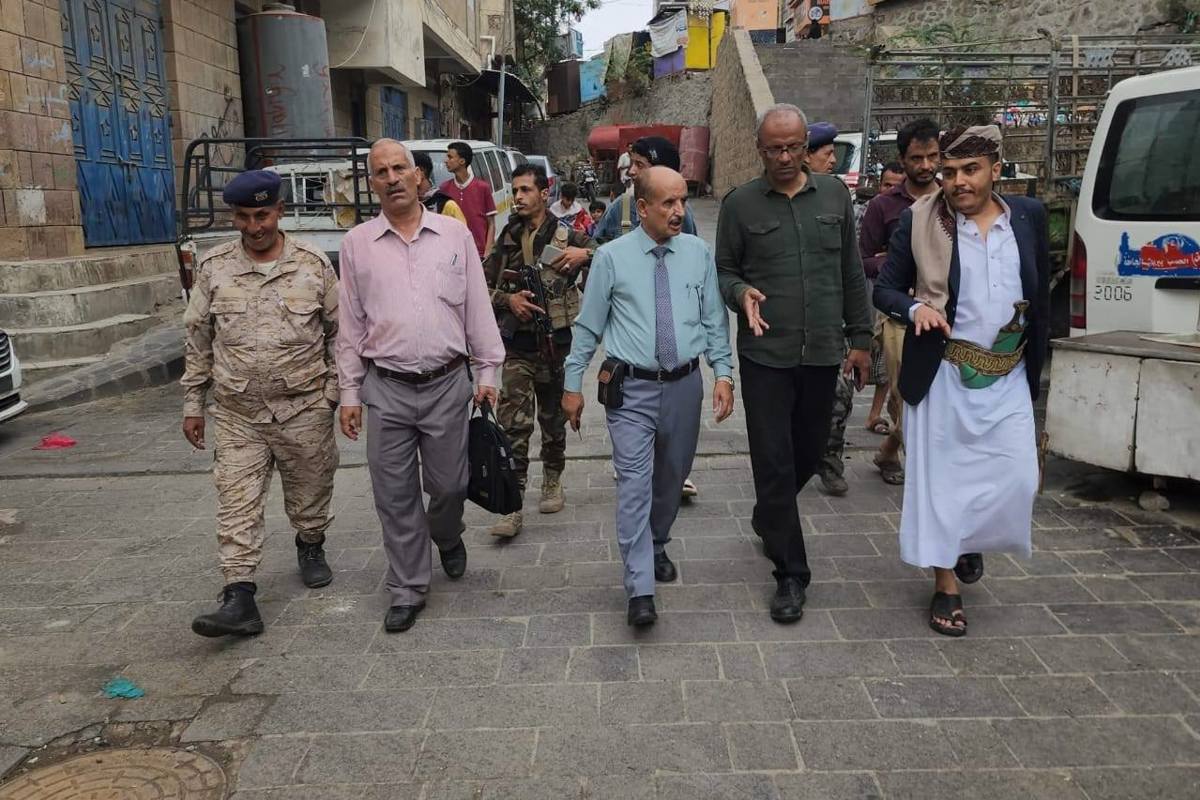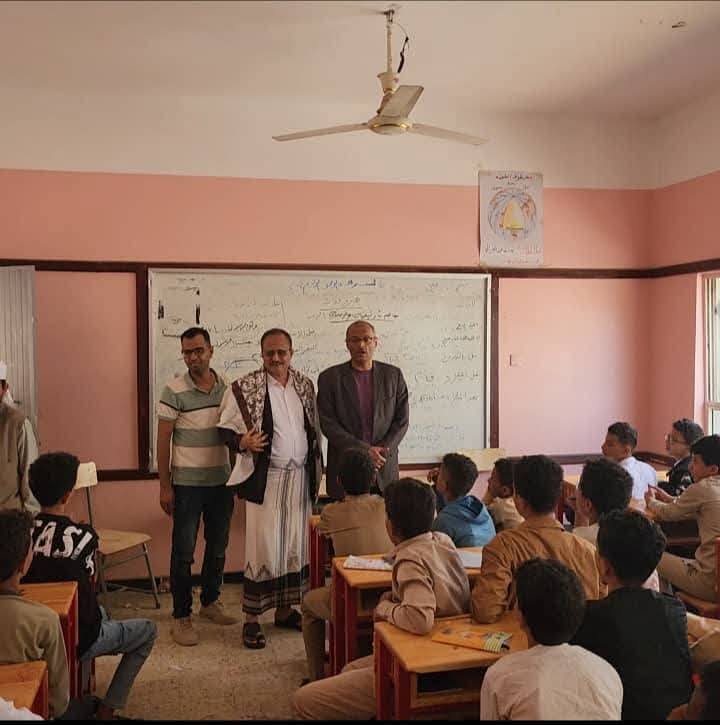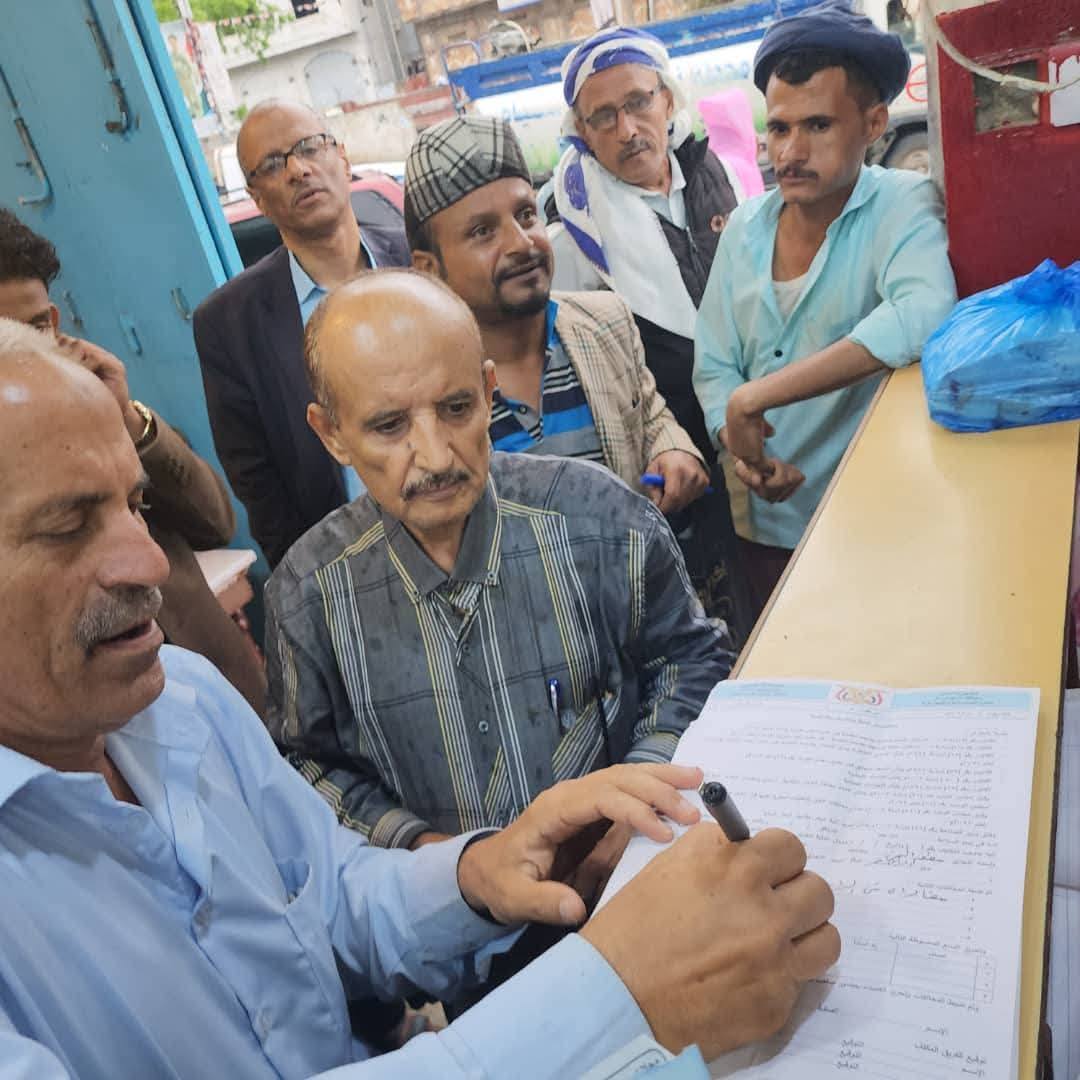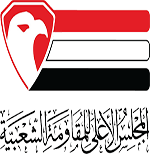The Popular Oversight Committee continues to monitor and supervise the performance of executive offices
2025-09-04
Special Report
Amid the worsening service crises in the city of Taiz, due to the Houthi siege on the one hand, and the financial and administrative failures and shortcomings of some local government institutions on the other, the Popular Oversight Committee continues its oversight activities over government executive offices. It stands with citizens in their demands for water, education, fair prices, and other basic services. It seeks to ensure a decent life, as part of the efforts of the Supreme Council of the Popular Resistance to promote transparency, improve services, and hold accountable any entity that fails to fulfill its duties towards citizens.
Water at the forefront of concerns
Since its formation last July, the committee has placed the water issue at the top of its priorities. It has undertaken a series of field visits, including to a number of wells within the city and in the Al-Dhabab area, and met with officials from the Water Corporation and the local authority, as well as experts and stakeholders, in an attempt to understand the roots of the crisis and reach practical solutions.
The committee also followed up on citizen complaints in several neighborhoods, including Sina, Al-Hawd, Al-Thawra, and Al-Shamasi, where it observed major breakdowns, some resulting from damaged main pipes, and others from attacks on corporation property. The committee conveyed these complaints directly to officials, stressing that its role would not be limited to monitoring, but would extend to applying continuous pressure until service was restored to citizens.
The committee's efforts were not limited to the Water Corporation; they included meetings with the Endowments Office to discuss the use of endowment wells, which number approximately 30 water springs, some of which are closed, rented, or under the control of influential individuals. It also discussed with the Agriculture and Irrigation Office the possibility of contributing to mitigating the crisis.
Market and Price Monitoring
Separately, the Popular Oversight Committee intensified its monitoring activities in the markets, participating in some of the weekly meetings of the Office of Industry and Trade and accompanying it on field visits to monitor its performance. The committee emphasized the need to stabilize the weight of loaves and roti at 50 grams and to gradually transition to selling by the kilogram to protect citizens' rights. The committee also contributed to reaching an agreement with the Bakers' Union to end the strike and resume work according to a new mechanism, which stipulates selling bread and roti at 1,200 riyals per kilogram. This contributed to stabilizing the sale of bread and roti. The committee emphasized the need for the Office of Industry and Trade to intensify its field visits, which resulted in detecting violations in bakeries and restaurants, confiscating expired products, and requiring stores to adhere to clear price lists and appropriate health and hygiene standards.
Education on the Monitoring Schedule
In the field of education, the committee held a meeting with the Director of the Education Office, Mr. Abdul-Wasea Shaddad, to discuss preparations for the new school year and the challenges facing the educational process, most notably the lack of textbooks, the increasing number of volunteer teachers, which now stands at 8,000, and the high registration fees in private schools.
Following this, the committee conducted visits to a number of public and private schools, including Al-Shaab, Bakthir, Zaid Al-Mushki, and Rawad Al-Fikr schools, to monitor the progress of the school year during its first days. The committee affirmed that it will continue to pressure official authorities to oblige private schools to reduce registration fees in line with the improvement in the currency exchange rate, and to ease the burden on families in light of the difficult living conditions.
Press Conference
On August 18, the Supreme Council's Services Department and the Popular Oversight Committee held a press conference to explain their activities and efforts to monitor several key issues and services. They emphasized that these steps are part of the Supreme Council's commitment to its national responsibility toward citizens and its efforts to address the accumulated crises resulting from the Houthi blockade, administrative corruption, and existing dysfunctions within official institutions.
The statement indicated that the Services Department addressed vital issues, most notably education, the rising cost of living, and market conditions. It also paid special attention to the water issue, after it became clear that the Houthi blockade and the prevention of water pumping from the main basins, in addition to corruption, mismanagement, and lack of maintenance, were the main causes of the crisis. The department proposed a package of solutions, including repairing networks, curbing corruption, and exploring alternative sources such as seawater desalination. It also called for the completion of the liberation process to resume pumping from the blockaded sources.
On the practical side, the Popular Oversight Committee confirmed that it had begun field visits and meetings with the water, industry and trade institutions, the Central Bank, and education institutions, as well as the Ministry of Endowments and Agriculture, to identify shortcomings and monitor the performance of executive offices. It also emphasized its continued oversight and public pressure until real solutions are secured for the water, education, and livelihood crises. It warned against a repeat of the electricity crisis, affirmed its support for citizens, supported all actors, and rejected any corruption or dereliction of duty.
Capacity Building and Strengthening Community Role
To enhance the effectiveness of its members, the Popular Oversight Committee team underwent a training course organized by the Training and Qualification Department of the Supreme Council for Popular Resistance, titled "Popular Oversight and Advocacy." The course focused on oversight concepts, influence mechanisms, and advocacy tools, enabling members to perform their duties with greater responsibility and awareness.
Call for Continued Oversight
The Popular Oversight Committee calls on various government agencies, primarily the Office of Industry, Trade, Standards, Metrology, and Environmental Health, to continue strict market oversight, control prices, and ensure product quality and health standards. At the same time, it warns against any violations, extortion, or exploitation of oversight for personal gain.
The committee affirms that it will continue its societal role, monitoring all service issues, exposing shortcomings, and pressuring authorities to fulfill their duties toward citizens. This will enhance the state's presence and alleviate the suffering of citizens who have been suffering under a Houthi siege for more than ten years.



